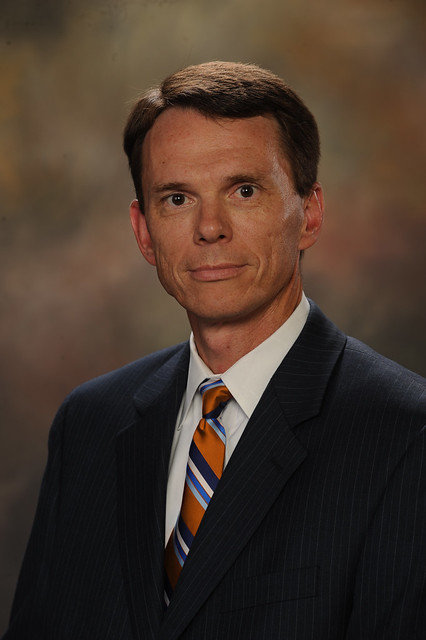Auburn University names Bill Hardgrave as provost and vice president for academic affairs
Article body
The dean of Auburn’s Harbert College of Business was named the university’s next provost and vice president for academic affairs following a unanimous vote by the Board of Trustees today.
Bill Hardgrave will succeed Tim Boosinger, who announced his retirement from the university in September. Beginning Jan. 1, Hardgrave will serve as the university’s chief academic officer, providing leadership to Auburn’s 13 colleges and schools in addition to numerous academic programs and units that support the university’s instruction, research and outreach mission.
“Auburn is a university on the move, and Bill brings the right combination of leadership and enthusiasm to help us grow our academic reputation, enhance the student experience and empower faculty,” said Auburn President Steven Leath.
Hardgrave has served as dean of the Harbert College of Business since 2010. Under his leadership, the college has increased its student enrollment, expanded its undergraduate and graduate program offerings, and experienced unprecedented philanthropic support, including a $40 million gift in 2013. With the goal of becoming one of the elite public business schools in the U.S., Hardgrave has successfully led the college through the development of a strategic plan, resulting in increased academic rankings, new educational and corporate partnerships, new research centers and additional resources for students and faculty.
“I’m honored and excited for the opportunity to continue to serve Auburn in a new role and help President Leath fulfill his vision, particularly in instruction and research,” said Hardgrave.
Prior to Auburn, Hardgrave was an endowed chair and professor of Information Systems in the Sam M. Walton College of Business at the University of Arkansas and served as the founder and executive director of the Information Technology Research Institute, which he established in 1999. He also founded and directed the RFID Research Center, which moved from the University of Arkansas to Auburn in 2014.
“As chair of the University Senate, I look forward to advising and collaborating with Dr. Hardgrave on academic issues and continuing Auburn’s strong legacy of shared governance,” said Dan Svyantek, professor of psychology.
Hardgrave has published several books and more than 85 articles primarily on the topics of software development and radio frequency identification. His research has appeared in such journals as MIS Quarterly and Production & Operations Management and cited in the Wall Street Journal, BusinessWeek, Fortune and other major media outlets. He has worked with Amazon, Walmart, Microsoft and other companies on the use of RFID in global supply chains.
In other matters, the board took action to:
-
Select M. Arthur Gensler Jr. & Associates of Washington, D.C., as the architect for the Plainsman Park player development improvements, as well as for the Auburn Arena locker room enhancement project. They also selected Rosser International of Atlanta as architect for the Jane B. Moore Softball Complex player development improvements.
-
Approve the project initiation for the next four phases of the Poultry Research Farm unit relocation project. Phase three includes a new 13,500-square-foot facility for the advancement of research and educational efforts. Phase four and five include construction of new poultry barns and other buildings. Phase six will be demolishing the existing barns and other buildings in the Auburn University Research Park.
-
Increase the scope and budget of the Graduate Business Building project. By constructing a 105,000-square-foot facility, instead of the proposed 80,000 square feet, it will provide a new floor level for additional case study and hybrid classrooms, larger undergraduate and graduate student commons spaces and office space. The cost is $45 million, a $15 million increase.
Projects receiving final approval from the board were:
-
Renovations to existing space on the first floor of the Miller Gorrie Center to create new virtual design and construction lab space for an estimated cost of $1.05 million.
-
Phase one of facility improvements for the equestrian team, which includes construction of a 10,000-square-foot equine barn and a team support facility, demolition of the existing barn and adding utilities infrastructure for an estimated cost of $5 million.
Related Media
Media interested in this story can contact Communications Director Preston Sparks at (334) 844-9999 or preston.sparks@auburn.edu.
Auburn University is a nationally ranked land grant institution recognized for its commitment to world-class scholarship, interdisciplinary research with an elite, top-tier Carnegie R1 classification, life-changing outreach with Carnegie’s Community Engagement designation and an undergraduate education experience second to none. Auburn is home to more than 30,000 students, and its faculty and research partners collaborate to develop and deliver meaningful scholarship, science and technology-based advancements that meet pressing regional, national and global needs. Auburn’s commitment to active student engagement, professional success and public/private partnership drives a growing reputation for outreach and extension that delivers broad economic, health and societal impact.





